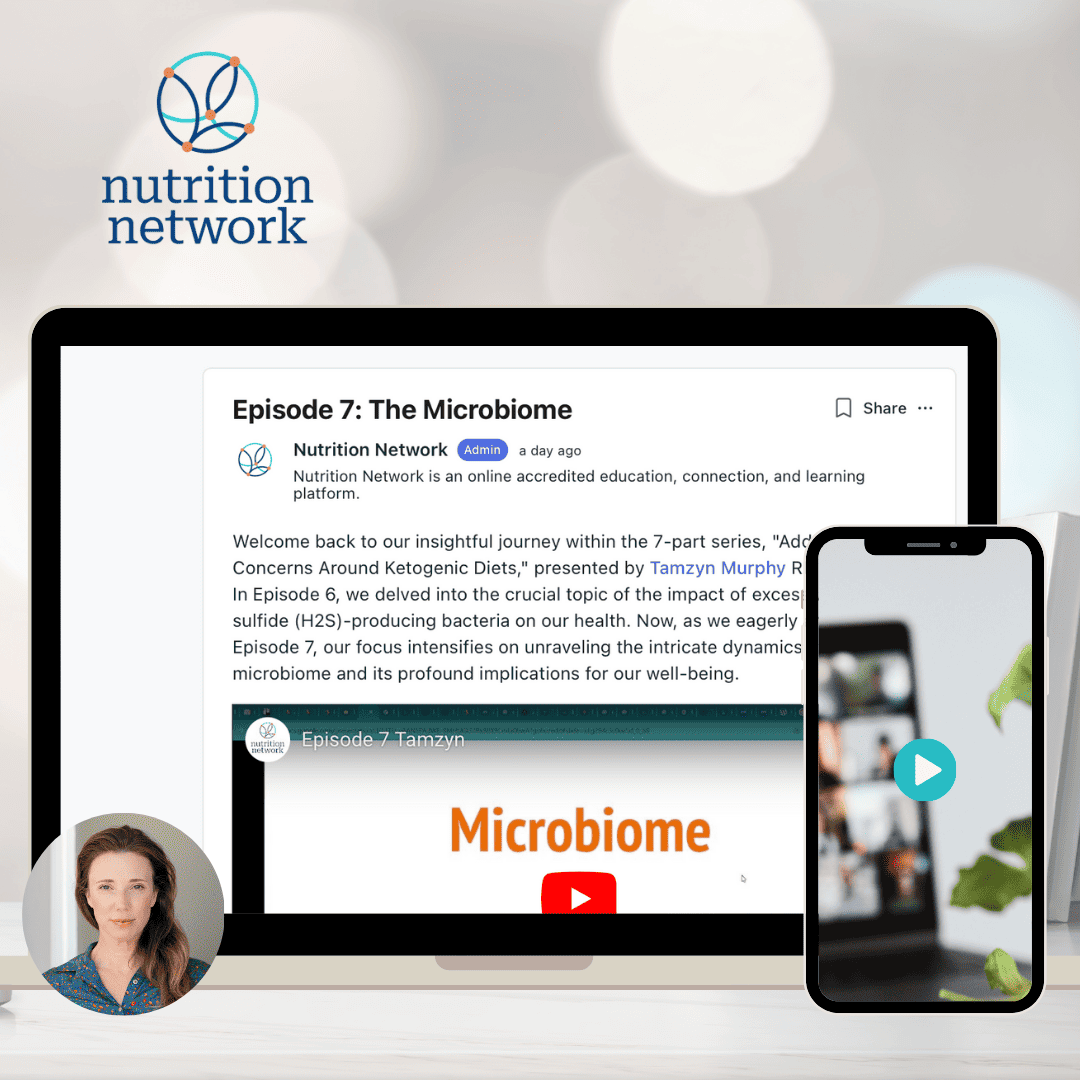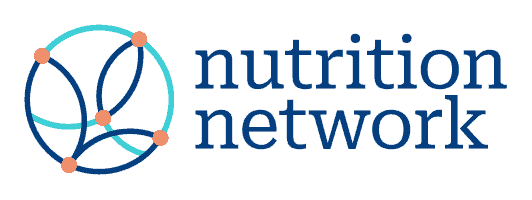
Tamzyn Murphy’s 7-part series on Addressing Concerns around Ketogenic Diets unfolds as a captivating journey into the complexities of dietary choices and their potential health implications.
Tamzyn is a registered dietitian with a Master’s Degree in Physiology (Dist.) in which she investigated Low Carbohydrate High Fat Diets and Type 2 Diabetes. Tamzyn’s special interest and experience in LCHF / Keto diets make her a key member of the Nutrition Network team. Tamzyn is also co-founder of Real Food Dietitians, a private dietetics practice focusing on Keto diets, where she consults with patients and runs Low Carbohydrate Challenges. Tamzyn has work experience in the community, supplement industry, nutrition writing, and editing for the media, as well as in low carbohydrate research.
The series kicked off via the Nutrition Network Community Platform over December and January 2024, with an exploration of the relationship between dietary components and the production of Short Chain Fatty Acids (SCFAs). Exclusively for our Premium and Elite members.
Supercharge your learning and enhance your clinical and coaching implementation skills by upgrading to Premium or Elite Membership here today for as little as $15 a month!
Episode 1 challenges the conventional narrative that considers fiber as indispensable for SCFA synthesis. Tamzyn’s nuanced perspective encourages critical thinking, promising to reshape perspectives on the role of fiber in ketogenic diets.
Moving on to Episode 2, the spotlight shifts to the intriguing connection between high-fat diets and metabolic endotoxemia. Tamzyn investigates whether high-fat diets enable the entry of lipopolysaccharides (LPS) into the bloodstream, triggering an inflammatory response. The episode evaluates evidence to determine the causality between LPS and metabolic disease, revealing unexpected insights that defy common assumptions.
Episode 3 delves into the impact of a high-fat diet on the production of secondary bile acids. Tamzyn explores the intricate relationship between dietary fat and bile acid metabolism, challenging concerns that increased bile acids may lead to adverse health outcomes. Scientific insights presented in this episode contribute to a deeper understanding of how dietary choices, particularly those rich in fats, influence metabolic processes and overall physiological well-being.
Episode 4 takes on the controversial topic of red meat consumption and its alleged association with an increased risk of colon cancer. Tamzyn navigates conflicting scientific evidence, shedding light on the nuanced nature of this relationship. The episode emphasizes the need for a comprehensive understanding and balanced perspectives when interpreting studies on the potential health implications of dietary choices.
The focus then shifts to Episode 5, exploring the impact of an animal-based diet on the production of trimethylamine-N-oxide (TMAO). Tamzyn investigates how compounds in animal products contribute to TMAO production, examining the potential link between elevated TMAO levels and cardiovascular diseases. The episode sheds light on the complex dynamics between diet, gut microbiota, and health implications associated with the consumption of animal-based foods.
Episode 6 brings attention to the impact of excessive hydrogen sulfide (H2S)-producing bacteria on health, adding another layer of insight to the ongoing series.
Lastly, Episode 7, our focus intensifies on unraveling the intricate dynamics of the microbiome and its profound implications for our well-being.
